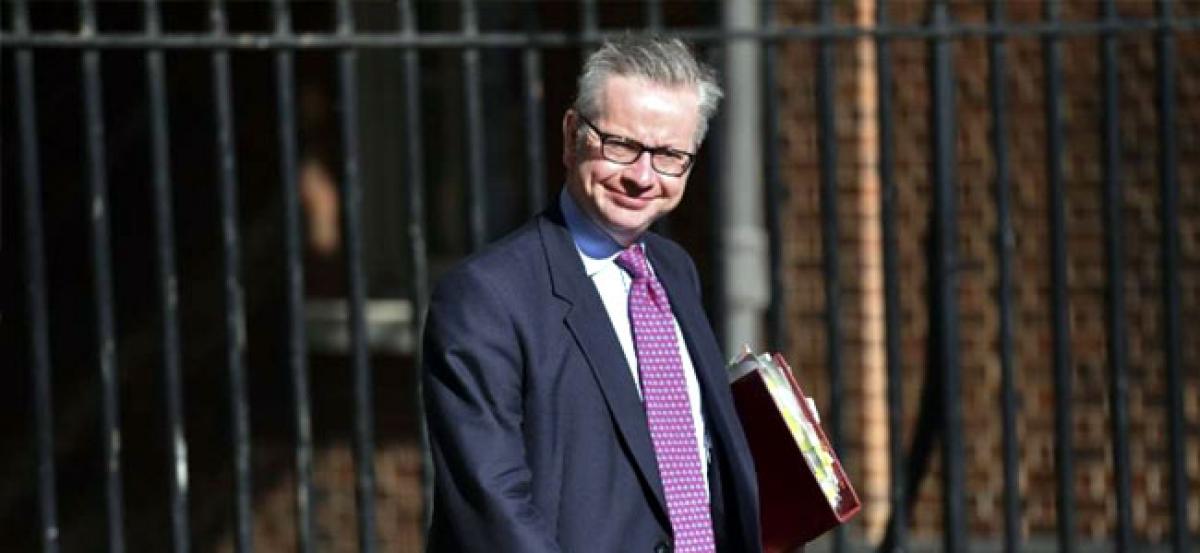Brexit negotiations: Theresa May defiant despite massive setback post Davis resignation

British Prime Minister Theresa May pledged on Monday to pursue a newly agreed strategy to quit the European Union, in a challenge to those who may want to follow her former Brexit minister and quit in protest at what he called her dangerous plans
British Prime Minister Theresa May pledged on Monday to pursue a newly agreed strategy to quit the European Union, in a challenge to those who may want to follow her former Brexit minister and quit in protest at what he called her "dangerous" plans.
The late-night departure of David Davis has raised the stakes for May, who hailed the hard-won agreement with her deeply divided cabinet of ministers on Friday to keep the closest possible trading ties with the EU. But her spokesman signalled on Monday she would not back down over the "business friendly" agreement, saying May would now focus on moving the Brexit negotiations forward - a step EU officials and businesses have long called for.
Davis, who campaigned for Brexit in Britain's 2016 referendum, said he had resigned because the cabinet deal had given "too much away, too easily" to EU negotiators, who, he feared, would simply ask for more.Sterling rose, as traders bet Davis's resignation would not imperil May and instead focused on the newly-announced deal that markets believe makes a "soft Brexit" more likely. Many eurosceptics have expressed anger over the agreed negotiating stance, calling it a betrayal of her promise for a clean break with the bloc that has raised the prospect that some could try to unseat her.But by appointing Brexit campaigner Dominic Raab as Davis's replacement, May might hope to quell some of that anger.
"The PM said in her letter to the secretary of state that she didn't agree with his characterisation of the position. An agreement was reached by the cabinet on Friday and now we are moving forward to negotiate that plan," the spokesman told reporters. "As the prime minister said ... we have set out our position and it is now the EU's turn to move and that she wants the EU to get serious in these negotiations." Davis's resignation may also further disrupt Brexit talks, with less than nine months before Britain leaves and just over three before the EU says it wants a deal that will mark Britain's biggest foreign and trade policy shift in decades.
But much of the day-to-day negotiation falls to May's office. The prime minister's Europe adviser, Oliver Robbins, has mostly led the talks in Brussels, with the Brexit minister taking a more coordinating role at home. Guy Verhofstadt, the European Parliament's chief Brexit coordinator, said he had enjoyed working with Davis and that he hoped Britain would unite "around a position to conclude a broad Association Agreement with the EU".
"RELUCTANT CONSCRIPT"
Davis said he had left because he feared the EU would "take what we have offered already and then demand some more. That has been their practice throughout the last year and I fear, in fact, if anything, this is just the start.""It seems to me we are giving too much away, too easily, and that is a dangerous strategy at this time," he told BBC radio. Denying that he wanted to unseat the prime minister, he said he would now "argue for being as firm as possible." In a letter to May, Davis said he was not willing to be "a reluctant conscript" to her negotiating stance. In a move that unnerved Conservative Party eurosceptics, Steve Baker, a minister who worked for Davis, also quit, saying in his letter to May: "I cannot support this policy with the sincerity and resolve which will be necessary."
For many Brexit campaigners, Baker's government role gave them faith in the process. After the hours-long meeting at Chequers, May seemed to have persuaded the most vocal Brexit campaigners in the cabinet, including Davis, to back her plan to press for "a free trade area for goods" with the EU and maintain close trade ties. It won the backing of one other prominent Brexit campaigner. Michael Gove, May's environment minister, said on Sunday that while the agreed negotiating stance was not perfect, he believed it delivered on handing back control to Britain.
But Davis had expressed his unease over a compromise plan right up until the eve of the meeting, writing a letter to May describing her proposal to ease trade and give Britain more freedom to set tariffs as "unworkable".Other Brexit-supporting Conservative MPs have criticised the Chequers deal, saying May's plans offered Brexit in name only. Their complaints raise a question mark over whether May can win backing in parliament for her plans if any deal with the EU is agreed later this year, and some suggest several of them could try to trigger a leadership contest against her.
She will face them at a meeting of the party later on Monday. The government is trying to convince lawmakers to back the agreed stance, inviting them, including those from the opposition Labour Party, for briefings on the plan.Jacob Rees-Mogg, the leader of a Conservative group of Brexit supporters, said Davis' resignation proved that their concerns were well-founded and signalled that he would not vote for May's plan if it came to a vote in parliament. He told Reuters. "If the Brexit Secretary could not support them (the Chequers conclusions) they cannot genuinely be delivering Brexit."














